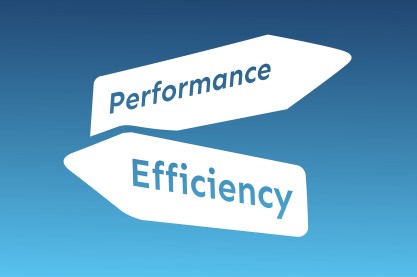Brochure - Vol. 1 (2...
4527 | 15 Dec 2022

Adequately designed business systems and processes support any organization's mission, strategy and goals. Even as people come and go, successfully implemented processes remain. Most business systems and processes are unique. They include subsystems or subprocesses that focus on the details of business activities. Engineering of business systems is important because it can help a company to improve their operations, gain a competitive advantage, and drive growth. By streamlining and optimizing business processes, a company can reduce costs, improve productivity, and increase the speed and quality of service delivery. By improving data management and analytics capabilities, a company can gain insights and make data-driven decisions that support strategic planning. And by improving the customer experience, a company can build stronger relationships with customers, increase customer satisfaction and loyalty, and drive sales growth. In today's competitive business environment, having effective business systems in place is essential for a company to succeed and thrive.
Good business systems and processes have three main goals:
A business process is a set of interrelated activities performed by people and systems. It is a representation of the sequence or flow of activities in the organization's system with the goal of achieving predetermined objectives. The process flow is controlled by decisions, triggers, events, and exceptions, all of which can be influenced by rules or policies. A business process defines a set of activities that are executed in parallel or sequentially to achieve a common goal.
Thus, business processes refer to the performance of activities required to achieve a specific goal. Each business process contains an initial event that triggers the start of process execution, inputs to the process, methods for executing the process, and outputs that are usually the results of the executed process. Business processes form a series of related activities into something that adds value to the organization through the execution of predefined activities. They can be unique and self-contained, or they can be part of a larger, comprehensive process. They can be considered the actual workflow within an organization. Any effectively designed process should also have performance indicators to determine the actual performance of the process. The processes' activities are performed systemically or by human actors, and they may be internal or outsourced processes within the organization.
A business consists of people, products and processes organized to find and retain customers profitably. Many businesses fail because owners and managers are unable to create effective business processes that achieve this fundamental goal. For a successful and long-term business, business systems must be built around business functions and processes, not people. This is because people come and go while systems and processes remain unchanged.
Effective systems and processes are essential building blocks of organizations. There are three general types of processes to consider:
Business Process Engineering refers to the study of business processes to improve and streamline them to achieve optimal implementation of the processes in terms of efficiency and cost. It involves planning and implementing operational methods that increase the organization's overall efficiency, combine the company's knowledge of IT with an understanding of business requirements, and reduce costs. Business process engineering involves companies examining their current business processes and developing new methods to improve performance. It examines how the company operates and its long-term goals and defines recommendations and ways to make overall improvements. Business process engineering focuses on both current and potentially new business processes. It addresses the problem of how to diagnose problems with the organization's current methodology and how to redesign, reconstruct, and monitor processes to ensure their success and effectiveness.
In an increasingly competitive and dynamic business environment, organizations need to be more proactive than ever and do everything in their power to gain a competitive advantage.
The larger an organization is, the more processes there are and the more difficult they are to manage.
An organization with more employees naturally has more complex processes. Each additional layer can create bottlenecks and reduce the value an employee can create during their everyday workday. It is vital that organizations recognize and differentiate between the terms and concepts in order to integrate them into a solid, comprehensive business process improvement strategy.
Implementing or changing business strategy usually requires changes to operations and the people who do the work. By nature, people resist change. Thus, the processes and rules included in the old strategy can influence the new strategy. A common challenge for many organizations is that business processes are often inefficient, resulting in increased losses, especially in time and money.
What are your thoughts on the subject above? Feel free to post a comment or start a discussion.


Leave A Comment